Rod Stewart - Profile
by Lisa Torem
published: 9 / 2 / 2015

intro
Lisa Torem reflects on the early solo career of Rod Stewart, whose five first albums have just been re-released in a vinyl box set
Between 1969-1975, British performer Rod Stewart’s ambitions were dual-purpose. The distinctive, scratchy-voiced performer would embark on his solo career in 1969, and also that year became the Faces' vocalist. A year after 'An Old Raincoat Won't Ever Let You Down'(1969), he’d record with Faces 'First Step', which would draw comparisons with the Rolling Stones. His second solo album, 'Gasoline Alley' (1970), featured mandolin, solid instrumental work and balladry. 'Every Picture Tells A Story' (1971), his third solo album, included 'Reason to Believe' and 'Maggie May', two solid hits. Long Player (1971) followed Faces’ 'First Step', bringing him more critical acclaim. 'A Nod Is As Good As a Wink…To A Blind Horse', his third album with Faces, included the now classic 'Stay With Me'. 'Every Picture Tells A Story' set Stewart on a different path, currying favour from the likes of punk band the Sex Pistols. Meanwhile, Stewart’s commitment to his solo career in 1972 was troubling his band mates. His fourth solo album, 'Never a Dull Moment' (1972), also reflected another shift in style. During that time he recorded 'You Wear It Well' and soul rocker 'Twisting the Night Away'. With Faces, he released 'Ooh La La' the next year, but Stewart’s ensemble interest was waning and, also, the album would not acquire the attention of previous recordings. In 1974, his fifth solo album 'Smiler' reached number one in the UK. In 1975, Faces dissolved. But Stewart would embark on another new sound. From his sixth solo album 'Atlantic Crossing'(1975), he released the single 'Sailing', which reflected his Muscle Shoals influences and, selling over a million copies, became his biggest UK seller. The 1980s found Stewart embracing synth pop. Material included 'Tonight I’m Yours' in 1981, his last UK number one hit 'Baby Jane' in 1983 and 'Out of Order' near the end of that decade. By the mid 1990s, Stewart would largely abandon original material and gravitate towards American pop standards and soul covers, admitting that he didn’t consider himself a serious songwriter. Stewart would, however, continue to enjoy a career as one of the most successful solo vocalists of the UK. Stewart's five first solo albums have just been re-released. Of them, 'Every Picture Tells a Story' went Platinum, 'Never a Dull Moment' went Gold in the US and 'Smiler' garnered Gold Status in the UK. 'An Old Raincoat Won't Ever Let You Down'(1969) The album is an awesome combination of fierce blues/rock and begins with ‘Street Fighting Man’ — perfect for Stewart’s wail. It’s spiked by cacophony: throbbing bass and blues harp. Personnel includes Ron Wood, Ian McLagan and Keith Emerson. ‘Man of Constant Sorrow’ is a meditative and imaginative arrangement on which Stewart ladles vocal gymnastics. The lyrics are also so romantic: “I see you on God’s golden shore.” ‘Blind Prayer’ could be a twin sibling of ‘House of the Rising Sun’ as it focuses on a boy from a very dysfunctional family. Stewart’s take is appropriately aggressive. This is one of the best cuts on the album — he takes on the world and is victorious. It’s truly a one-off. ‘Handbags and Gladbags’ is a Mike d’Abo cover. “Ever seen a blind man cross the road trying to make it to the other side?” The lines just keep on coming: crisp and revealing: “Once I was a young man and all I had to do was smile.” “So what becomes of you, my love,” is, however, the line, which unifies the story. On the theme song, Stewart shows off his penchant for tongue twisters and his natural bent for rhythm. There are great keyboard moments here, too, before the whole ensemble starts cooking. ‘I Wouldn’t Ever Change a Thing’ offers a chunk of philosophy, which offsets the sentiment. ‘Cindy’s Lament’ is one of the bright, sparkling originals. Monster drumming against a simple melodic pattern kicks it. It’s got a swampy hole-in-the-wall charm and humility — “You don’t have to notice my brand new shoes/But please say hello sometime.” ‘Dirty Old Town’ written by Ewan MacColl is fantastic. Stewart’s voice barely rises above a whisper. The guitarists take the heat and there’s a strong harp solo. 'Gasoline Alley' (1970) The title song finds Stewart in synch note for note with the instruments, which gives it an authentic blues feel. It’s a simple form — a wonderful palette on which to springboard the rootsy strings. This album is generous with solo work and that broadens and distinguishes the arrangements and honours Stewart’s scraggly voice. The rockabilly pulse of now classic ‘It’s All Over Now’ can’t be beat. It’s the quintessential party song and, although this version is much more stylised than the one recorded by the Stones ,Stewart makes it his own. ‘Only a Hobo’ is a stirring, underrated ballad, which reveals Stewart’s softer side and builds compassion to those less fortunate. Although ‘My Way of Giving’ doesn’t much move the album along in any grand fashion, ‘Country Comforts does the job. It’s a wonderful story about a family getting by. ‘Cut Across Shorty’ is bluegrass-tinged, another great contrast. ‘Lady Day’ is told from the view of a discarded romantic. “North winds have made my face a little older,” Stewart sings with conviction. ‘Jo’s Lament’ is again plaintive and ‘You’re My Girl’ rocks hard with a Led Zep-type intro. and lots of spirit. 'Every Picture Tells A Story' (1971) This song begins this assortment of dreamy, slice-of-life ballads flush with harmonies, compact solo work and straight-ahead arrangements. The title song was penned by Ron Wood and Rod Stewart. Collectively the album celebrates the talents of Mick Waller on percussion, Ron Wood on extraordinary guitar and Pete Sears on piano. ‘That’s All Right’ begins with an unusual intro and includes terrific bar room piano. But don’t think Memphis, double think Austin. ‘Tomorrow is Such a Long Time’ features no-nonsense lyrics:“If today were not an endless highway…” The writing is honest, simple and gripping and enhanced by pedal steel sounds, lustful strums and strings. The legendary interlude that starts off hit 'Maggie May’ is unforgettable.‘Mandolin Wind’ features more delightful mandolin. ‘I Know I’m Losing You’ gives Stewart a chance to stretch his raspy voice and provides the framework for a forceful rendition. ‘Reason to Believe’ is another heartfelt ballad with touching lyrics. The break is a lovely violin solo. Stewart’s voice loses none of its panache during the unexpected a Capella stanza. 'Never a Dull Moment' (1972) ‘True Blue’ gets a bit lost in the shuffle but ‘Los Paraguayos’ is fascinating, a cross between big band swing, mariachi and‘Margaritaville’—it’s over the top, but great fun. That leads on to the Zydeco-imbibed ‘Mama You Been On My Mind’ and the underdeveloped ‘Italian Girls’ salvaged by pleasing piano.‘Angel’ is no-frills, but gorgeous and then there’s a lovely charmer,‘Interludings’ which adds beauty and grace. ‘You Wear It Well’ was one of the signature tunes which cemented Stewart’s career. He tackles ‘I’d Rather Go Blind,’ the Etta James classic, but even with soaring organ bits to back him up, he seems to be holding back. Stewart does seem to feel right at home, however, with ‘Twisting the Night Away.’ 'Smiler' (1974) This recording was Rod Stewart’s last fling with Mercury Records. Whatever is not tied down seems to be included in ‘Sweet Little Rock‘n’Roller’—complete with barking dogs and Chuck Berry bravado, it could take the place of a barnyard rooster for an early morning wake-up call it’s so full of concentrated energy. ‘Farewell’ means saying goodbye to “cable cars, movie stars and cheap bars.” There’s an engaging story here begging to be told. ‘Sailor’ is “tearing down the highway/Escaping his wedding day.” We’ve all had days like that, haven’t we? ‘Bring It On Home To Me’ and ‘Let Me Be Your Car’ are more primal. Stewart takes a chance with ‘A Natural Man’—it took guts to mess with a Carole King classic. The arrangement is cluttered and Stewart doesn’t really seem to mean what he says.‘Dixie Toot’ and ‘Hard Road’ say it much better. Sometimes simple says it best.‘I’ve Grown Accustomed to Her Face’ is unexpected but beautiful as an instrumental, and whilst it’s nice to devote time to a Dylan classic, ‘Girl from the North Country’ is overproduced. ‘Mine for Me’ is a haunting closer. The collection as a whole is very enjoyable despite a few missteps. Rod Stewart’s career really kicked off when he joined the Jeff Beck group in the late 1960s and then with Faces, although he also played harmonica with Long John Baldry and the All Stars. In the 2000s, he would revert to“classics” so it’s great to witness those early songwriting efforts, especially as so many wonderful songs were co-written and produced during this time.
Band Links:-
https://rodstewart.com/https://www.facebook.com/rodstewart
https://twitter.com/rodstewart
Have a Listen:-
Picture Gallery:-
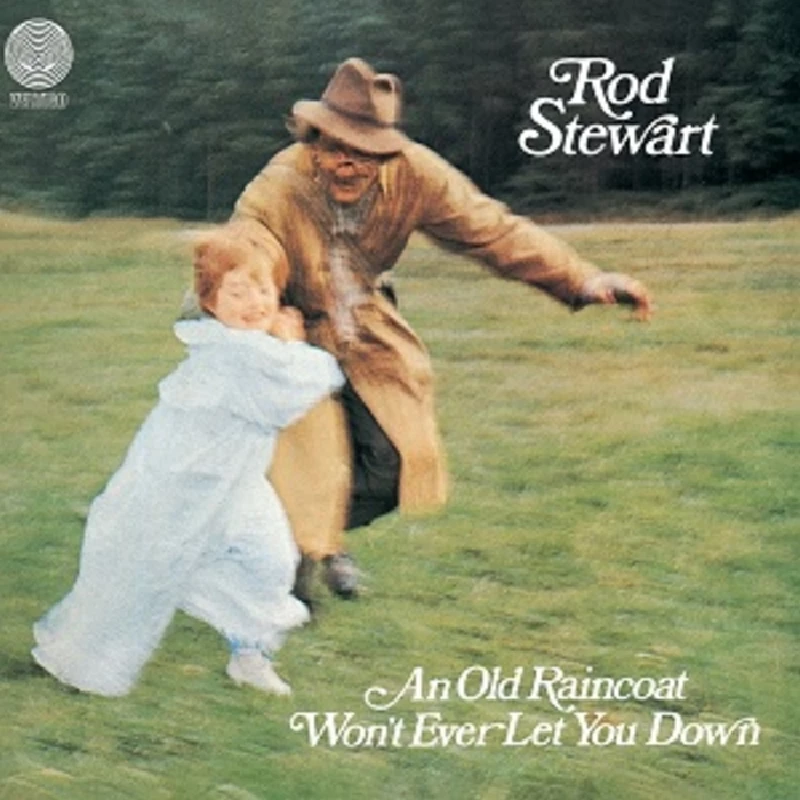
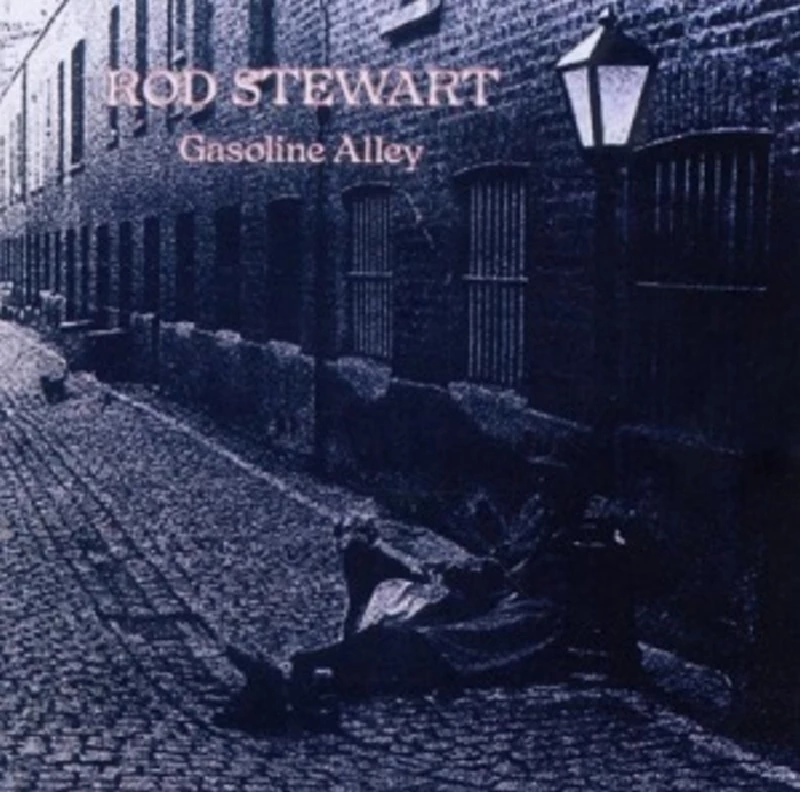
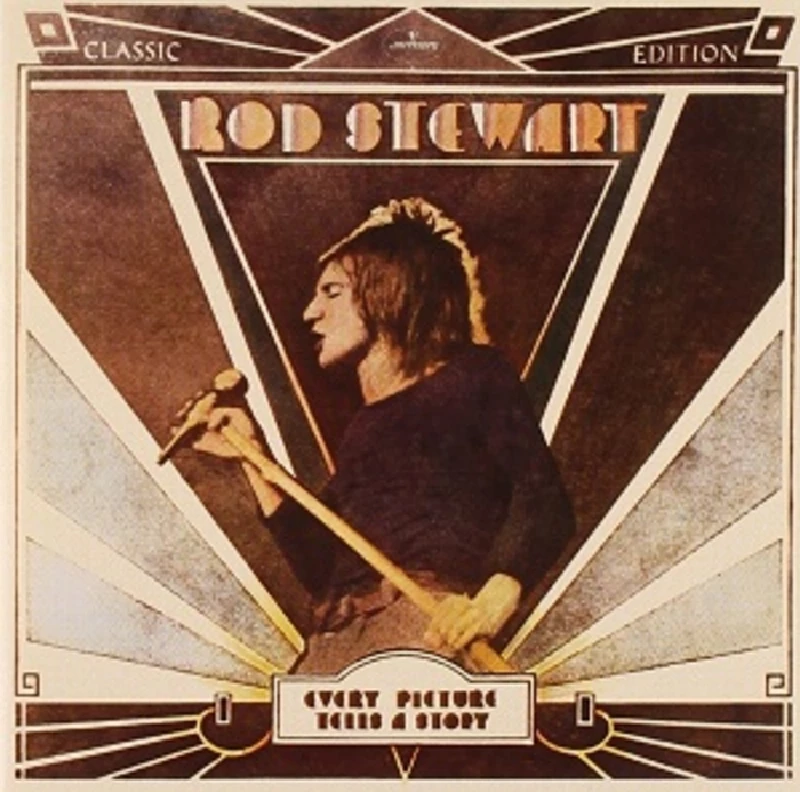
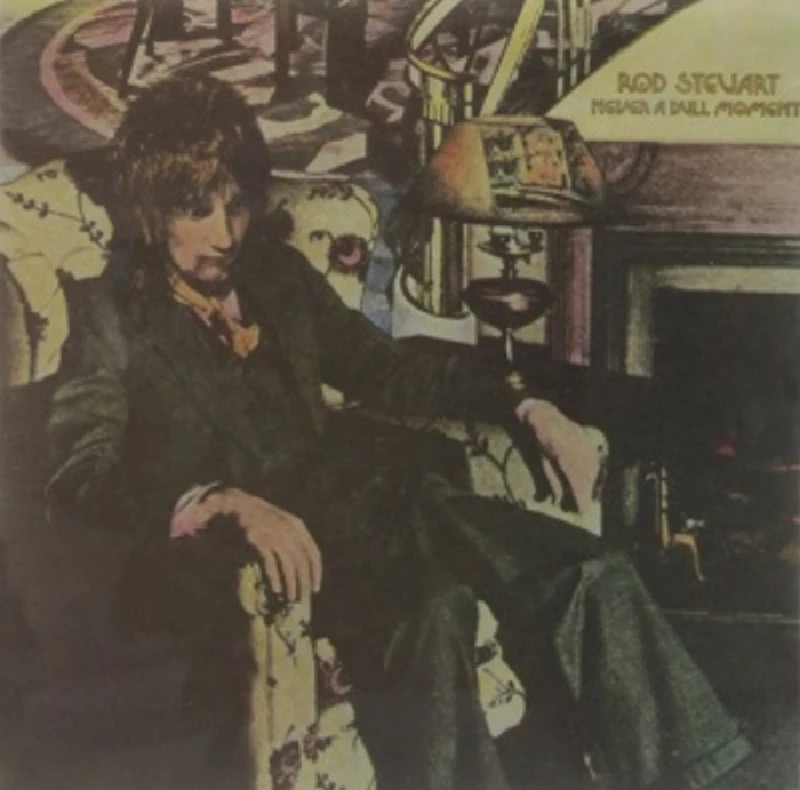
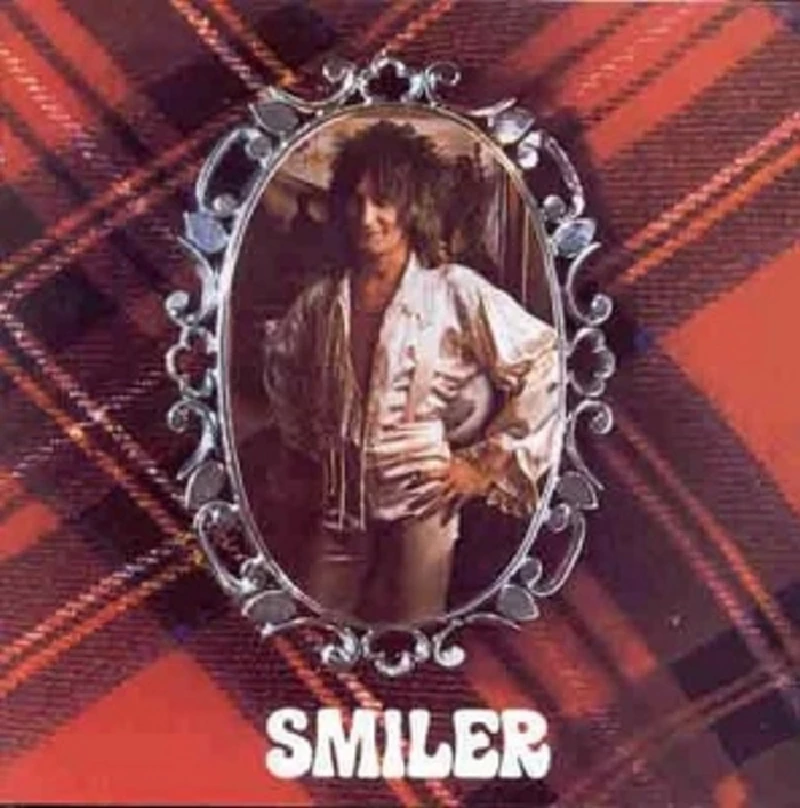
live reviews |
|
IFEMA Palace, Madrid, 14/12/2023 |

|
| Philamonjaro watches and photographs Rod Stewart play an age-defying and visually stunning set at the IFEMA Palace in Madrid. |
| 02, London, 21/9/2013 |
soundcloud
reviews |
|
The Tears of Hercules (2021) |

|
| Strong return to form on impressive latest album from Rod Stewart |
most viewed articles
current edition
Carl Ewens - David Bowie 1964 to 1982 On Track: Every Album, Every SongSimian Life - Interview
the black watch - Interview
John McKay - Interview
Editorial - July 2025
Billie Eilish - O2 Arena, London, 10/7/2025
Armory Show - Interview with Richard Jobson
Hothouse Flowers - Photoscapes
Bathers - Photoscapes 2
Cleo Laine - 1927-2025
previous editions
Trudie Myerscough-Harris - InterviewBoomtown Rats - Ten Songs That Made Me Love....
Blues and Gospel Train - Manchester, 7th May 1964
Pixies - Ten Songs That Made Me Love...
Fall - Hex Enduction Hour
Heavenly - P.U.N.K. Girl EP
Sam Brown - Interview Part 2
Place to Bury Strangers - Interview
Miscellaneous - Charity Appeal
Doris Brendel - Interview
most viewed reviews
current edition
Sick Man of Europe - The Sick Man of EuropeAmy Macdonald - Is This What You've Been Waiting For?
Phew, Erika Kobayashi,, Dieter Moebius - Radium Girls
Alice Cooper - The Revenge of Alice Cooper
Blueboy - 2
Lucy Spraggan - Other Sides of the Moon
Bush - I Beat Loneliness
Davey Woodward - Mumbo in the Jumbo
Philip Jeays - Victoria
Lapsley - I'm a Hurricane, I'm a Woman In Love
Pennyblackmusic Regular Contributors
Adrian Janes
Amanda J. Window
Andrew Twambley
Anthony Dhanendran
Benjamin Howarth
Cila Warncke
Daniel Cressey
Darren Aston
Dastardly
Dave Goodwin
Denzil Watson
Dominic B. Simpson
Eoghan Lyng
Fiona Hutchings
Harry Sherriff
Helen Tipping
Jamie Rowland
John Clarkson
Julie Cruickshank
Kimberly Bright
Lisa Torem
Maarten Schiethart